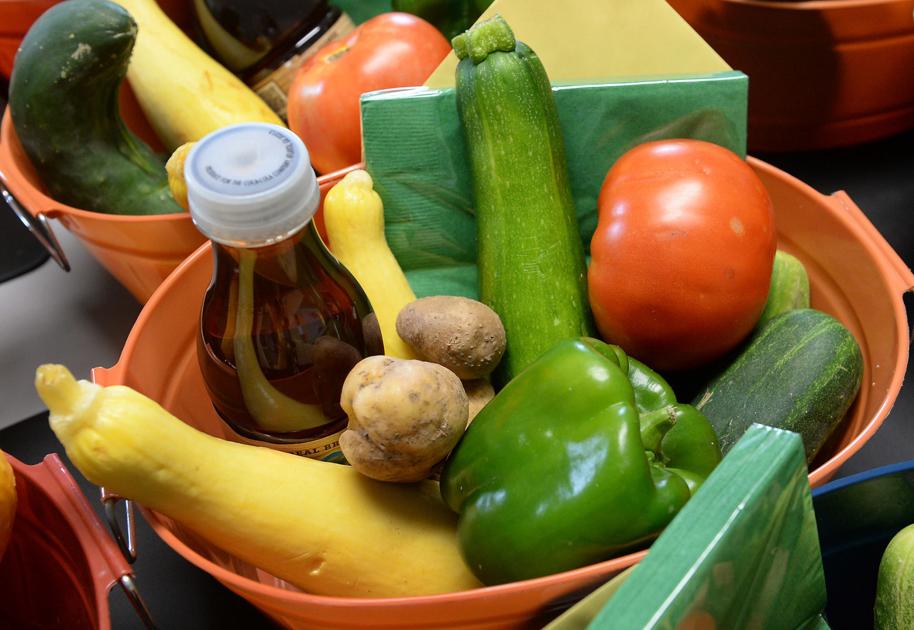
“Food is everything we are. It’s an extension of nationalist feeling, ethnic feeling, your personal history, your province, your region, your tribe, your grandma. It’s inseparable from those from the get-go.” — Anthony Bourdain
I must confess something. I am guilty of a cardinal sin. Every Monday, no matter the weather, I go on a long walk, where I contemplate my existence, those who came before me and open my front door to bring in the package from my meal delivery service.
It feels so good to tell someone that.
Meal delivery service usage accounts for 17% of the nation’s consumers. While I solemnly reflect on my culinary cheating, the increasing meal kit industry has provided many with an avenue to try new things and spend more time in the kitchen, regardless of their geographic limitations.
Our food, from the way we eat it, the way it’s prepared and the ingredients, provide a medium for conversation, a way to learn about culture and those who are sitting next to us, wherever we may be. It is imperative to encourage sharing a meal with one another to bridge the increasing divides in our nation. I need reminded of this sentiment often.
America, known as the melting pot to many who sought to call this place home, has welcomed a plethora of new cultural phenomena. For instance, olive oil, one of the most sacred facilities in the kitchen, only became popularized 40 years ago, when Americans more frequently sought out Mediterranean food, and the diet industry claimed it controlled cholesterol. (It doesn’t.)
Today, you can’t find a grocery store that doesn’t carry Bertolli.
Influxes of culture within our diverse nation have provided an ample opportunity to learn about the parts of the globe many may never have the chance to discover. The recent changes in the political atmosphere have expounded on the need for discussion, there is far more that connects us than divides this. These discussions start with sharing meals.
In 2016, Make America Dinner Again launched. Justine Lee and Tria Chang founded the organization after the election highlighted political polarization across the nation. On the home page of their website, they explain their simple motto: “There are many avenues to protest, to donate, to fight, to be heard; Make America Dinner Again is an avenue to listen.”
In an organized effort to bridge divides, they began inviting others to sit down and share a meal. The hosted meals facilitate a respectful discussion and guided activities for a small group of people who may create a meal together or bring individual dishes to trade and try.
Unfortunately, our various cultures are frequently only married because of conflict. More recently, the Israeli-Palestinian conflict has taken up prime-time television discussion. In 2013, Palestinian chef Laila El-Haddad and Israeli chef Maggie Schmitt sat down for an interview, together, with Bon Appetit magazine.
Laila’s Gaza, home to 2 million people, faces vast insecurities, with over half living in poverty. Less than 200 miles away, Jerusalem is a far richer nation, with a poverty rate around 20%, vastly different from their neighbor. Still, the two countries share a love for their food.
Despite many knowing of the conflict between the two cultures, we fail to understand the stories of the people who live there. “[The book uses] the cuisine to talk about the larger situation,” Laila says.
“We have an interest in compiling the recipes and the culinary culture, but also have the documentary ambition of talking about the overall situation in Gaza through the food,” Schmitt adds.
The discussion between the two women exemplifies the value of sharing recipes and the ingredients that make them. Recipes are the context for the world we live in.
The first meaningful relationship I had with food began at a young age. My Jewish ancestry had always been a mystery. My household was religiously divided, and much of my childhood sought to discover a connection I could have with faith. For a large part of my young adult life, my connection was simple: latkes.
A simple dish, latkes are a pan-fried potato pancake created with a grated potato, onion and egg, with a brilliant dollop of sour cream or applesauce. The dish’s origins, though, are far from simple. Judah Maccabee, a devout Jew, along with his followers, overthrew the Syrian Greek king who attempted to impose harsh penalties on Israelites and their faith. When the Maccabees claimed the temple, they used a ritual oil that was said to last for a day, but miraculously lasted eight. The latkes are now one of the many illustrations of the marvelous oil consumed on Hanukkah.
My early 20s led me to the Catholic faith, finally finding a home meant for me after a divided childhood. Yet, the latkes are my closest reminder to my family, the origins of the faith and the journeys they faced. For every Hanukkah since I was young, I invite over friends, create the dish and share the story that provided me with hope for so many years.
In the 21st century, we’re consumed with technology and head deep in social media almost 24 hours a day. The digital-age addiction has alienated anyone with an opinion. Every day, we are focusing on “he said, she said,” forgetting our identities and the way each of us is connected to the other.
It is imperative that we strive for conversations that work with one another, rather than against one another. The foods that touch our plates each day provide the necessary gateway to the communities and cultures we need to understand.
"Opinion" - Google News
October 05, 2021 at 06:00AM
https://ift.tt/3uT7XLH
Jessica Dobrinsky: Food can save our world (Opinion) - Charleston Gazette-Mail
"Opinion" - Google News
https://ift.tt/2FkSo6m
Shoes Man Tutorial
Pos News Update
Meme Update
Korean Entertainment News
Japan News Update
No comments:
Post a Comment